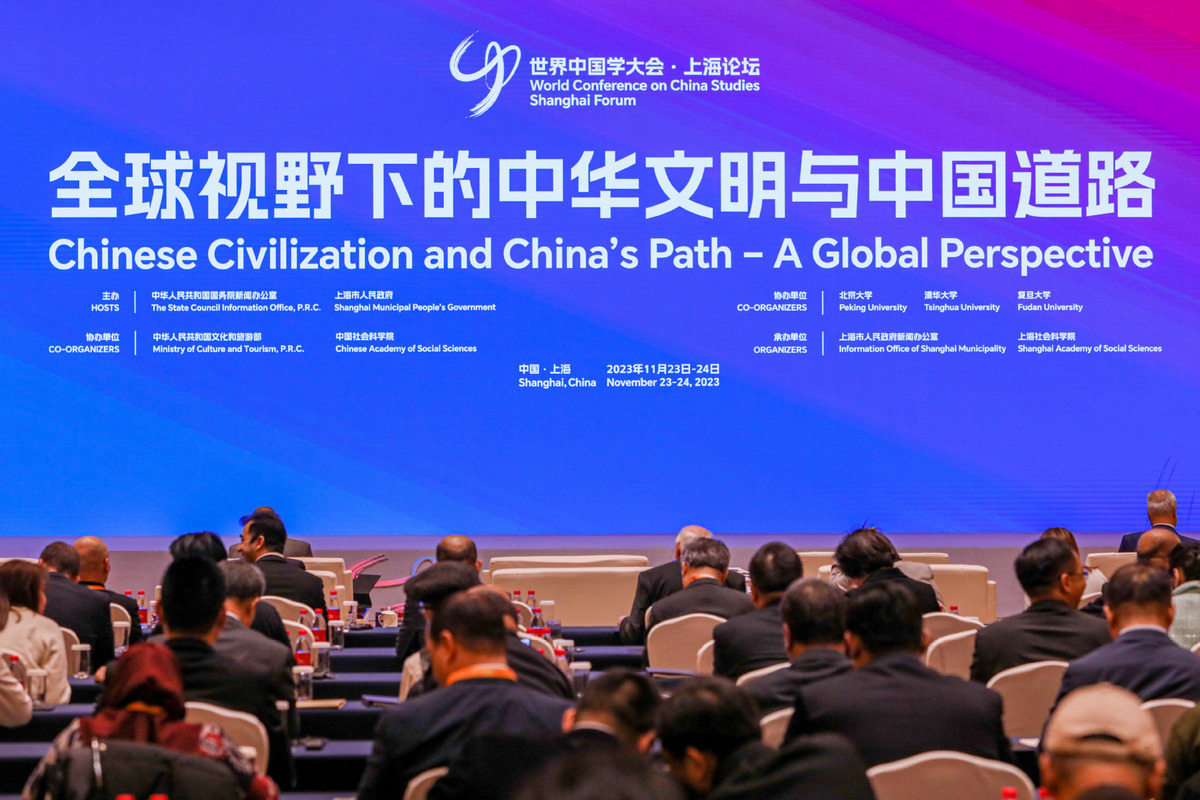China studies can help young Americans better know the country


The World Conference on China Studies held in Shanghai late last month attracted more than 400 participants from 60 countries and regions. It shows the importance China attaches to such studies and its desire to be better understood by the world.
The first time I heard the expression Zhongguo yanjiu in Chinese on TV, it took me a few seconds to associate it with China studies. "Yes, it's China studies, just like America studies, a course I took while studying in the United States 40 years ago," I muttered to myself.
As Chinese nationals, we have been encouraged to yanjiu Zhongguo (study China) to better understand our roots, culture and history, and our future course of development. But China studies, as an academic subject, is still as new to us Chinese as it is to the foreign scholars and students.
While America studies was a hot subject among foreign students in the United States during our college years, China studies was rarely heard of outside China. Some China studies scholars conducted research either by studying Laozi and Confucius and their teachings or by reading whatever modern China-related materials they could get their hands on.
Forty-five years of reform and opening-up, preceded by three decades of sanctions and boycott, have transformed China into the world's second-largest economy. This economic miracle, especially the successful lifting of about 800 million people out of poverty, are subjects worth studying by the rest of the world.
This year's statistics show that about 180 countries and regions are teaching Chinese as a foreign language with 80 of them making Chinese an official second-language choice in schools. And more than 80,000 schools and training institutions are offering Chinese lessons, attracting about 30 million learners.
With so many people interested in the Chinese language, culture, history and development, it is understandable that more and more foreign universities are offering China studies as a major and doctoral subject. A swift online check shows the US and Germany have more than 10 universities each offering China studies.
Knowing how much I have benefited in my 40-year journalism career from the America studies course I took up, I hope the China studies campaign is successful in both scale and depth, because it can help foreigners better understand China, which will benefit not only China but also the rest of the world.
For decades, some foreign "China experts" have been claiming that China will soon collapse, while some others claim a stronger China would pose a threat to the world order and global peace. Both predictions have failed, while China has gradually become an important player promoting global peace and development. It's clear that the so-called China experts have many limitations when it comes to explaining China-related issues.
A more comprehensive and thorough study of China should help the foreign experts understand China's history, culture, governance, political system, and development philosophy.
China's invitation to 50,000 American students to visit the country in the coming five years is not only a friendly gesture toward Americans but also a further boost to China studies in other countries and regions. The students attending such courses will meet friendly people, visit historic relics and diverse geological landscapes — an experience I enjoyed when I traveled to the US as a journalism student four decades ago.
The American students will also see how the Chinese people are dealing with a lot of challenges — a slowing economy, pollution and enterprises' difficulties caused by Western sanctions.
Compared with the earlier generations who relied only on books to learn about China, the field study should be a more enriching experience for the young Americans. They will find that the Chinese people treasure peace and are endeavoring to build a better life — just as the Americans do.

The author is former deputy editor-in-chief of China Daily.
































